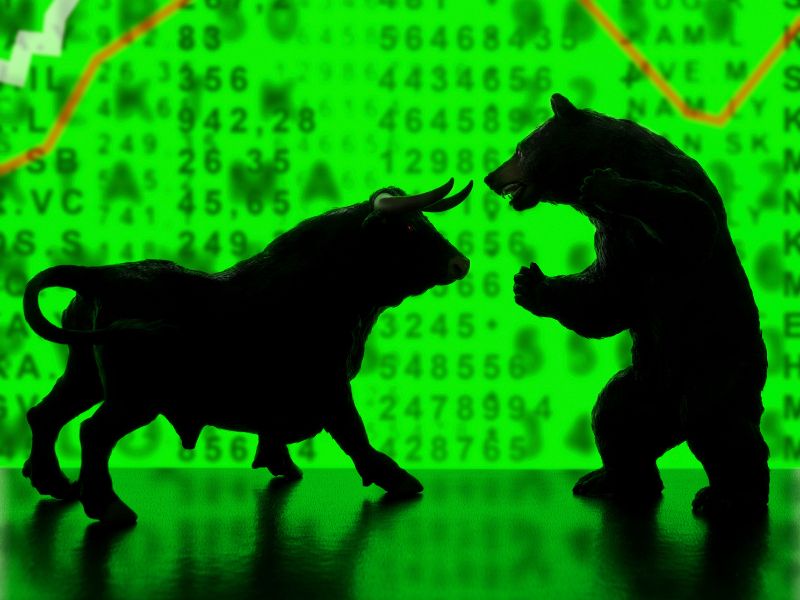A look at Wall Street History
Dogs and Ponies? Birds and Bees? Frogs and Toads? All seem like fine pairings of our animal friends. So why did Wall Street end up with Bears and Bulls?
There is some debate about the origins of the financial worlds’ mascots. Did they originate in ancient proverbs? In 17th-century poetry? From the lore of pioneering animal skin traders? From the one and only William Shakespeare?
No one seems to agree on which tale is the most accurate, but there are certainly some entertaining stories.
The simplest explanation is the most debunked. And frankly, the most boring. A bull market refers to a market that is appreciating in value with most investors buying and the economy on an incline. A bear market, in contrast, indicates a depreciation in value, investors more likely to sell, and the economy receding.
Thus, one theory suggests that the terms simply refer to the manner in which each of the animals attacks its prey. Bulls thrust their horns upward which would correlate to a bull market on the rise. The bear is said to swipe down with his paws when attacking, indicating a market in decline (Morrow, 2022).
Snooze. Let’s explore some more interesting theories.
Some contend that the bear and bull metaphors go back to an old proverb by Jean La Fontaine, a 17th Century French poet. The proverb advises, “Never sell the bear’s skin before one has killed the beast” (Morrow, 2022).
This warning refers to the country’s earliest pioneering animal skin salesmen who were known as “bearskin jobbers.” They were peddlers who would sell skins they had not yet received. They attempted to secure a higher price from their buyers than they hoped to pay the fur trappers. This led to using the term “bear” to refer to a speculator selling stock. The presumption followed that a bear market would indicate a downward trend in the market (Burrows, 2022).
History indicates that the using the term “bear” to refer to a receding economy became more widespread during the South Sea Scandal of 1720 when a bunch of British tricksters drove up the price of a company that never made a profit. The result was one of the earliest financial crashes in history. Later the term became popular again in reference to the 1929 stock market crash that led to the Great Depression (Morrow, 2022).
So, what about the bull?
The bull references seem to have originated mostly in literature. It’s possible that the bull might have been chosen only because a poet was looking for the name of any animal whose name would rhyme with “full” (Morrow, 2022). In a verse of one of his poems that seems to indicate his involvement in the South Sea Scandal, Alexander Pope, writes (Morrow, 2022):
Come fill the South Sea goblet full;
The god shall of our stock take care:
Europa pleased accepts the Bull,
And Jove with joy puts off the Bear.
Some of the most famous British literature of all time also references the bull and the bear. In two of his works, Shakespeare conveys the struggle of his characters through the symbolism of the two animals.
In MacBeth, a character declares “Bear-like, I must fight the course” in order to stand up to his enemies. In Much Ado About Nothing, Shakespeare refers to the bull as both savage and noble (Hall, 2021).
Whether or not we can truly agree on the origins of these metaphors for market movement, it is important for investors to understand the implications of both. Long term investors learn to live through both bear and bull markets; it’s not a reason to depart from your strategy, but being properly diversified and rebalanced helps to weather the cycles.
References
Burrows, D. (2022, September 27). 8 Facts You Must Know About Bear Markets. Retrieved November 12, 2022, from Kiplinger: https://www.kiplinger.com/slideshow/investing/t052-s001-8-facts-you-need-to-know-about-bear-markets
Hall, M. (2021, November 30). Where did the Bull and Bear Market Get Their Names? Retrieved November 12, 2022, from Investopedia: https://www.investopedia.com/ask/answers/bull-bear-market-names
Morrow, A. (2022, June 14). How bears and bulls became Wall Street’s Mascots. Retrieved November 12, 2022, from CNN: https://www.cnn.com/2022/06/14/business/bear-bull-meaning-wall-street-stocks




